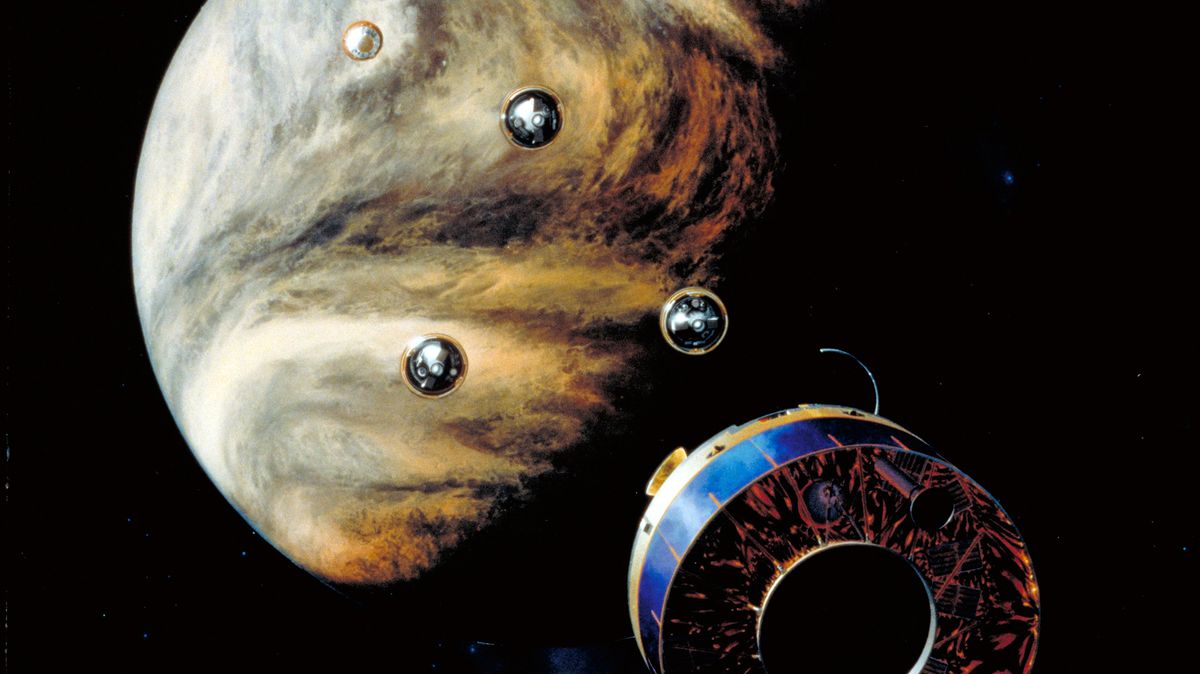
If life does exist on Venus, NASA may have first detected it back in 1978.
14, a team of scientists made a bombshell announcement in the journal Nature Astronomy: Using telescopes, they'd detected phosphine, a toxic gas long proposed as a possible sign of alien microbial life, in the upper part of the planet's thick atmosphere.
But now, digging through archival NASA data, Rakesh Mogul, a biochemist at Cal Poly Pomona in California, and colleagues have found a hint of phosphine picked up by Pioneer 13 — a probe that reached Venus in December 1978.
The 1978 data comes from the Large Probe Neutral Mass Spectrometer (LNMS), one of several instruments that descended into Venus' atmosphere as part of the Pioneer 13 mission. .
Pioneer 13 dropped a large probe (the LNMS) into Venus' clouds; suspended from a parachute, the probe collected data and beamed it back to Earth as it plummeted toward its robotic death.
(Three smaller probes also dropped from Pioneer 13 without parachutes.) The LNMS sampled the atmosphere and ran those samples through mass spectrometry, a standard lab technique used to identify unknown chemicals.
When Mogul's team reexamined the LNMS data from Venus' lower and middle clouds (a potential habitable zone on the planet), they found signals that look a great deal like phosphine, the researchers wrote.
But Pioneer 13's sample did have evidence of some molecule present in the gas that had the same mass as phosphine — in amounts that match the levels described in the Nature Astronomy paper.
"I believe that evidence for [trace chemicals that could be signatures of life] in the legacy data were sort of discounted because it was thought that they could not exist in the atmosphere," Mogul said.
"I think many people are now revisiting the notion of Venus as a fully oxidizing environment." (A "fully oxidizing environment" wouldn't include phosphine or most other chemicals seen as signs of life.).
Mogul and his colleagues also found hints of other chemicals that shouldn't arise naturally in Venus' clouds — substances like chlorine, oxygen and hydrogen peroxide.